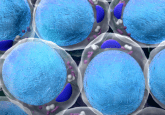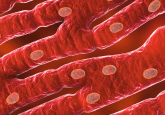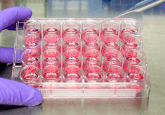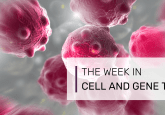Top 5 grants in regenerative medicine: February 2022
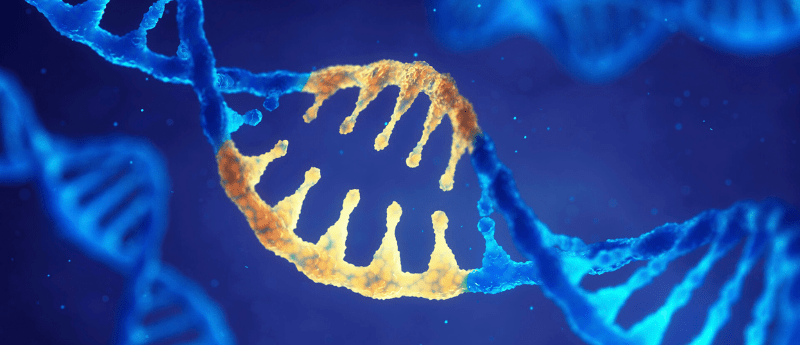
This month’s top grants in regenerative medicine, sourced from Dimensions, includes projects on: nano-engineered injectable biomaterials for osteoporotic bone treatment; the role of LAP in controlling liver homeostasis; in situ skin regeneration for full thickness burn injuries; microRNA dynamics and function during neurogenesis; and biophysical modulation for scalable biomanufacturing of stem cell-derived therapeutics.
Check out this month’s top grants in regenerative medicine:
- Nano-engineered injectable biomaterials for osteoporotic bone treatment
- Role of LAP in controlling liver homeostasis
- In-situ skin regeneration for full thickness burn injuries
- microRNA dynamics and function during neurogenesis
- Biophysical modulation for scalable biomanufacturing of stem cell-derived therapeutics
Nano-engineered injectable biomaterials for osteoporotic bone treatment
The aim of this study is to develop an advanced biomaterial technology to restore structural integrity and function of disease-damaged bone to tackle the challenge of osteoporotic vertebral fractures – a problem for which there is currently no reparative treatment. This will be achieved through the utilization of antioxidant-ion substituted nanoparticles to target disease-impaired osteoblast function and drive bone regeneration. The antioxidant-ion substituted nanoparticles will released from an innovative biomaterial, combining mechanically robust nanosilicates with a bioresorbable collagen matrix.
Funding amount: US$226,000
Funding period: 1 January 2022 – 31 December 2023
Funder: European Commission
Research organization: Royal College of Surgeons in Ireland (Ireland)
Role of LAP in controlling liver homeostasis
The main goal of this study is to understand the specific role of the novel LC3-dependent phagocytosis (LAP) pathway in hepatocytes for regulation of liver function and immunity. The LAP pathway is known to mediate engulfment of extracellular components and their intracellular processing and degradation – its processes have been described to affect sensitivity to influenza virus infection in the lung and its regulation can prevent Alzheimer’s disease in old age.
The project will utilize a transgenic mouse to observe the effects of LAP depletion in hepatocytes. This will be useful in understanding the influence of LAP in the regulation of liver responses to injury and regeneration.
Funding amount: US$772,000
Funding period: 3 January 2022 – 2 January 2025
Funder: Biotechnology and Biological Sciences Research Council (BBSRC)
Research organization: Quadram Institute (UK)
In-situ skin regeneration for full thickness burn injuries
Patients suffering partial and full thickness burns currently have limited access to treatment, with lack of available donor skin and long manufacturing timelines of cultured epithelial autografts.
This study aims to overcome the many challenges preventing the use of spray-on skin cells for full-thickness burns, developing allogeneic dermal substitutes with laser ablative dermal papillae to promote the formation of rete ridges and enhance keratinocyte proliferation.
Funding amount: US$925,000
Funding period: 1 January 2022 – 31 December 2024
Funder: Shriners Hospitals for Children (SHC)
Research organization: Shriners Hospitals for Children (OH, USA), The Ohio State University (OH, USA)
microRNA dynamics and function during neurogenesis
The stem cell population in the nervous system can generate thousands of different neuronal and glial cell types, facilitated by microRNA’s ability to simultaneously fine-tune the expression of multiple mRNA targets. microRNAs are challenging to isolate and identify from small populations of cells, making their role during neuronal differentiation and in the progression of neural stem cells unclear.
This research project aims to identify and characterize the network of microRNAs involved in the development of the central nervous system. Understanding these mechanisms is a step towards controlling manipulation of gene networks for therapeutic applications in regenerative medicine for cancer.
Funding amount: US$635,000
Funding period: 20 December 2021 –19 December 2025
Funder: National Agency for Research (ANR)
Research organization: Centre National De La Recherche Scientifique (Marseille, France), Institut De Biologie Du Développement De Marseille (Marseille, France)
Biophysical modulation for scalable biomanufacturing of stem cell-derived therapeutics
This project aims to improve extracellular vesicle (EV) production through noninvasive mechanical stimulation of mesenchymal stem cells. EVs possess immunomodulatory and pro-regenerative functions, proving them to be promising therapeutic agents for a range of clinical disorders.
It is anticipated that this research will add to our understanding of mechanotransduction in mesenchymal stem cells behind EV release, as well as provide evidence for overcoming the challenges of large-scale manufacturing in EV production.
Funding amount: US$446,000
Funding period: 1 January 2022 –31 December 2023
Funder: Directorate for Engineering (NSF ENG)
Research organization: University of Arkansas at Fayetteville (AR, USA)
Brought to you with support from:

